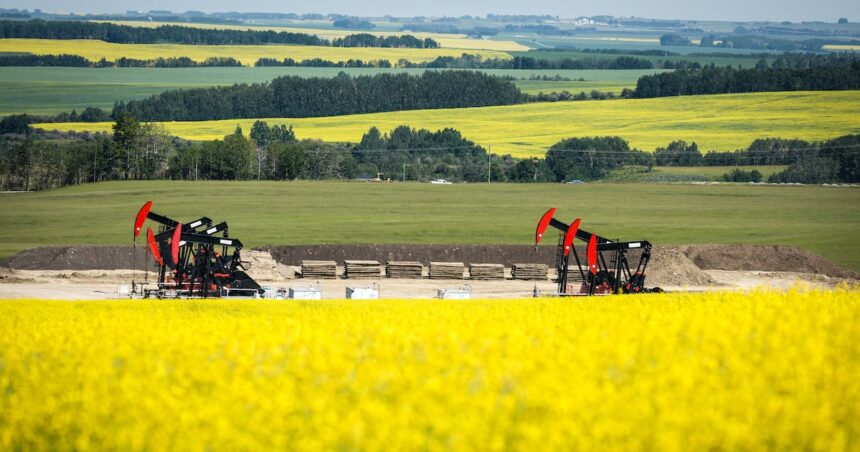The golden fields of Manitoba, once symbols of agricultural prosperity, now represent uncertainty as China’s newly imposed tariffs on Canadian canola send shockwaves through the province’s farming communities. Fourth-generation canola farmer James Wilson surveys his 3,000-acre farm near Brandon with growing concern, watching market prices tumble in response to Beijing’s latest trade action.
“It’s devastating, absolutely devastating,” Wilson told CO24 during an interview at his family farm. “We’ve invested everything in this year’s crop, and overnight, our profitability outlook changed completely.”
China announced yesterday it would impose a 38% tariff on Canadian canola imports, citing “quality concerns” that Ottawa firmly rejects as unfounded. The move represents a significant escalation in ongoing agricultural tensions between the two nations that began in 2019 when China first restricted Canadian canola imports following the arrest of Huawei executive Meng Wanzhou.
According to the Manitoba Canola Growers Association, the province exports approximately $1.2 billion worth of canola to China annually, representing nearly 40% of Manitoba’s total canola production. Association president Sarah Chen estimates the tariffs could cost Manitoba farmers between $300-400 million this year alone.
“We’re talking about real families and real communities that depend on fair access to international markets,” Chen explained. “These tariffs aren’t just numbers on paper—they threaten the economic foundation of rural Manitoba.”
Federal Agriculture Minister David Reynolds called China’s action “unjustified and deeply concerning” in a statement released this morning. “We have repeatedly demonstrated that Canadian canola meets or exceeds all international quality standards,” Reynolds stated. “We are pursuing this matter through diplomatic channels and considering all available options under international trade agreements.”
The Canadian government has initiated emergency consultations with industry stakeholders and provincial representatives to develop response strategies. Sources within the Agriculture Ministry indicate that emergency support measures for affected farmers are being considered, though specifics remain undetermined.
Agricultural economists warn the timing couldn’t be worse. Dr. Amrita Patel from the University of Manitoba’s Department of Agricultural Economics told CO24 that many farmers are already struggling with rising input costs and lingering drought effects from last season.
“This creates a perfect storm of financial pressure,” Dr. Patel said. “Canola prices have already dropped 12% since the announcement, and the uncertainty is preventing farmers from making crucial planting and investment decisions for next season.”
In Portage la Prairie, community leaders express concern about the ripple effects on local economies. “When farmers struggle, the entire community feels it,” noted Chamber of Commerce president Robert Lewis. “Implement dealerships, seed suppliers, restaurants, retailers—everyone will feel this impact if it continues.”
The Manitoba government has pledged provincial support while urging federal authorities to resolve the dispute quickly. Premier Allison Crawford emphasized that the province is exploring provincial assistance programs that could provide temporary relief to the hardest-hit operations.
As diplomatic efforts continue, farmers like Wilson face difficult decisions. “Do I reduce acreage? Shift to different crops? Or hold course and hope for resolution?” he wonders, looking out over fields nearly ready for harvest. “The worst part is the uncertainty—we can manage bad news, but we can’t plan around unpredictability.”
The tariff situation raises important questions about Canada’s agricultural export dependency and international trade relationships. As global agricultural markets become increasingly politicized, should Canadian farmers diversify their export destinations, or should the government develop more robust protections against such trade disruptions?










